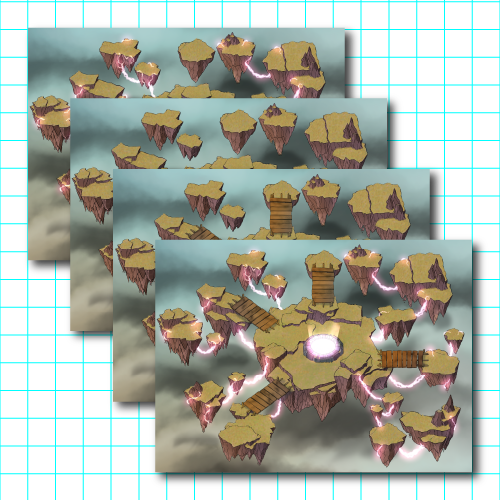Disclaimer: This page contains SPOILERS for the movie Finding Dory.
I sobbed in a movie theater today.
Like many families this weekend, my wife and I took our kids to see Pixar's latest animated feature, Finding Dory. I expected to have to escort at least one kid to the restroom mid-movie. I expected another kid to ask to sit on my lap. I expected at least one of them to get bored halfway through, and ask to go home. I did not expect to have my heart shredded to pieces, and cry uncontrollably.
I'm not a cry-at-the-movies kind of guy. I've written before about how becoming a parent has fundamentally altered the way I consume art -I think for the better, but I've never experienced anything like the feeling that crept through my body while watching a cartoon fish deal with mental illness.
I knew, as soon as it began, that my son, who will be five years old this fall, who we'll call Number Four today, was the source of my emotional reaction. He's smart, he's kind, he's chatty, and he does a wicked British accent. He also has a tendency to emotionally explode when things don't go as planned. He gets scared and embarrassed easily, and when it happens, he can't process anything around him. He screams, and the depth of his scream is enough to unsettle other children around him. When things go wrong, even slightly, the whole world falls apart for him. More than once, his classmates have remarked on his behavior. "He's a bad kid," they say.
Number Four has been working on his outbursts, and he's made some noticeable progress. It's a huge, frustrating, and exhausting undertaking to get this kind of help for a kid. We've had weekly meetings with a behavioral therapist, and we're working on having him evaluated for sensory processing disorder. We still don't really know what we're doing yet.
What does this all have to do with a Disney sequel, you ask? Finding Dory reveals in its opening scene, that when Dory tells Marlin in Finding Nemo, "I suffer from short-term memory loss. It runs in my family... At least I think it does... hm. Where are they?" it isn't a one time occurrence. In fact, Dory has spent her entire life meandering across the ocean, looking for a family she lost as a child. Dory, the comic relief, is immediately transformed into a gut-wrenchingly tragic figure, doomed to wander the ocean in search of a family she can't remember.
Throughout the film, as she begins to remember more about her childhood, it is revealed that Dory's parents, who do not share her affliction, worked tirelessly to teach her to cope with it. They practice behavioral skills, and construct a trail of shells in case she gets lost. It was during this scene that it dawned on me what I was watching. The first slice cut through my heart as I watched a computer animated fish version of myself cheerily tell my child how to find a way home. The cuts kept coming. Dory blames herself for getting lost as a child and I hear my son's voice, as he comes down from a fit, "I'm stupid! Why do you even want me in this family!?"
The final cut comes as we see another flashback of Dory's childhood. She overhears her parents talking, her mother in tears, weeping for fear that they have not done enough, that perhaps they cannot ever do enough, to keep their daughter safe in a world she can't quite connect to. I knew that feeling. The fear that your child won't be able to keep friends. The fear that your child could be in danger because they don't see the world like the rest of us. I knew that helpless feeling. I recognized it well, and the tears came.
There are people who will see this movie and never give it a second thought. It'll get lost between the goofy sea lion gag, and the cuddling otters gag. They won't equate those fish to the people struggling all around them. A few years ago, I might not have made the connection, either. I see it now. I hope others will see it too.
As the tears came, I held my son tightly; he was on my lap, bored, and wanted to go home.



















